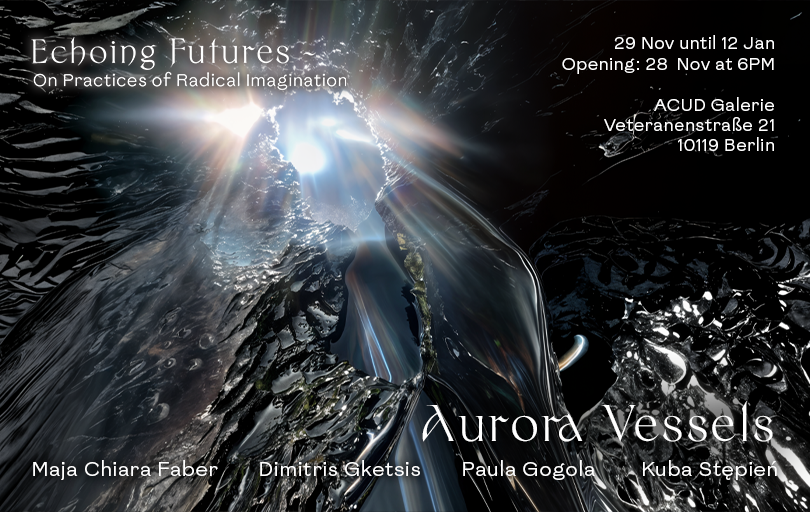Aurora Vessels
FRI 29.11.2024 - SUN 12.01.2025
Opening: THU 28.11, 18H ACUD Galerie
with a performance by Satin de Compostela at 19.30H
Opening hours:
THU-SUN
15H-19H
Participating artists: Maja Chiara Faber, Dimitris Gketsis, Paula Gogola, Kuba Stępień
The exhibition Aurora Vessels explores a deeply empathic, communal feeling, one that anticipates the emergence of queer ecologies and shared narratives throughout current times. This evolution weaves together into a communal myth - an ever-evolving foundation that grounds the identities and collective imagination of queer entities.
Myth, by its very nature, is paradoxical: it is both a foundational tale and a falsehood. Myths are stories outside empirical truth that nevertheless offer frameworks for understanding profound, often inexplicable phenomena, frequently invoking the supernatural. Through this lens, myths ground the formation of selves and communities by providing symbolic structures that transcend empirical truths, yet capture essential, shared realities.
Devdutt Pattanaik argues that myths "capture the collective unconsciousness of a people"*; they reflect deep-rooted beliefs about variant sexualities that may be at odds with repressive social mores.
Myths are making politically queer claims on behalf of nature and time.
The fluid potentials of mythology destabilize hegemonic frameworks.
The gallery is divided into two "time capsules," each embodying an interconnected approach to queer manifestations. The first time capsule draws on ancient myths, reinterpreting mythic tales as open dialogues that speak to the fluidities of our own time. By reclaiming and queering these mythologies, the artists explore the timelessness of queer experiences - highlighting how echoes of these ancient stories remain potent guides for contemporary understandings of self and other.
In contrast, the second time capsule foregrounds the struggles and systemic oppressions that have shaped queer existence in our contemporary world. Through nuanced reflections on social marginalization, censorship, and identity politics, these works probe the forces that continue to constrain queer lives. Yet even here, myths become beacons of defiance and resilience. In this context, they emerge not only as a form of cultural heritage but as tools of survival, inviting us to reimagine worlds where queer people exist beyond persecution and erasure.
In "Aurora Vessels," queer mythology emerges as both a historical and revolutionary tool, disrupting entrenched binaries of fact and fiction, nature and culture, past and present. By drawing on decentralized narratives of socially repressed queerness, this exhibition seeks to amplify voices and stories that have been silenced, finding new vessels for their re-emergence. In this context, mythology is not simply a repository of ancient lore but a dynamic medium through which queer identity continues to evolve and be reimagined.
*Devdutt Pattanaik: The man who was a woman and other queer tales of Hindu lore, 2002.
Programme:
Exhibition Opening: Thu., November 28, 2024, 6 pm
with a performance by Maja Chiara Faber aka Satin de Compostela at 7:30pm
Curatorial Tour with Gabriela Matuszewska
Thursday, December 5, 2024, 6 pm
Workshop echo°o°o - collective worldbuilding with Magdalena Emmerig
Sunday, December 8, 2024, 4.30 - 7pm
Curated by Gabriela Matuszewska
Aurora Vessels is the sixth chapter of the exhibition series Echoing Futures - On Practices of Radical Imagination at ACUD Galerie. The series contains six exhibitions and an accompanying programme.
Team
Artistic direction of the series: Linnéa Meiners
Curation: Alžběta Čermáková, Gabriela Matuszewska and Linnéa Meiners
Press: Franciska JC Schmitt
Production: Miriam Döring
Exhibition design: Torsten Oetken
Social Media: Gabriela Matuszewska
The exhibition series Echoing Futures - On Practices of Radical Imagination is supported by the multi-sector funding programme of the Senate Department for Culture and Social Cohesion.
Image credit: Hypereikon
DE
Aurora Vessels
FREITAG 29.11.24 - SONNTAG 12.01.25
Eröffnung: DONNERSTAG 28.11.24 18H
Die Ausstellung Aurora Vessels erforscht ein zutiefst empathisches und kollektives Gefühl, das die Entstehung queerer Ökologien und gemeinsame Erzählungen in der heutigen Zeit vorwegnimmt. Diese Entwicklung verwebt sich zu einem kollektiven Mythos - einem sich ständig weiterentwickelnden Fundament, das die Identitäten und die kollektive Vorstellungskraft queerer Entitäten verankert.
Der Mythos ist von Natur aus paradox: Er ist sowohl eine Erzählung von grundlegender Bedeutung als auch eine Unwahrheit. Mythen sind Geschichten, die außerhalb der empirischen Wahrheit liegen, aber dennoch einen Rahmen für das Verständnis tiefer, oft unerklärlicher Phänomene bieten und sich oft auf das Übernatürliche beziehen. Sie legen den Grund für die Bildung des Selbst und von Gemeinschaften, indem sie symbolische Strukturen bereitstellen, die über empirische Wahrheiten hinausgehen und dennoch wesentliche gemeinsame Realitäten erfassen.
Devdutt Pattanaik argumentiert, dass Mythen "das kollektive Unbewusste einer Gemeinschaft einfangen"*; sie können tief verwurzelte Überzeugungen über Sexualitäten, die im Widerspruch zu repressiven sozialen Sitten stehen, widerspiegeln.
Mythen erheben politisch queere Ansprüche im Namen der Natur und der Zeit. Die fluiden Potenziale der Mythologie destabilisieren hegemoniale Rahmenwerke.
Die Galerie ist in zwei "Zeitkapseln" unterteilt, die jeweils eine ineinander greifende Annäherung an queere Manifestationen darstellen. Die erste Zeitkapsel basiert auf antiken Mythen und interpretiert mythische Erzählungen als offene Dialoge, die sich auf die Fluidität unserer eigenen Zeit beziehen. Indem sie diese Mythen zurückerobern und queeren, erkunden die Künstler*innen die Zeitlosigkeit queerer Erfahrungen - und heben hervor, wie die Echos dieser alten Geschichten nach wie vor kraftvolle Wegweiser für das zeitgenössische Verständnis von Selbst und Anderen sein können.
Im Kontrast dazu beleuchtet die zweite Zeitkapsel die Kämpfe und systemischen Unterdrückungen, die das queere Leben in der heutigen Welt geprägt haben. Durch nuancierte Reflexionen über soziale Marginalisierung, Zensur und Identitätspolitik werden die Kräfte untersucht, die das Leben von Queers noch immer einschränken. Aber auch hier werden Mythen zu Leuchttürmen des Widerstands und der Resilienz. In diesem Kontext erscheinen sie nicht nur als eine Form des kulturellen Erbes, sondern auch als Überlebenswerkzeuge, die dazu einladen, sich Welten vorzustellen, in denen queere Menschen jenseits von Verfolgung und Auslöschung existieren.
In „Aurora Vessels“ wird Queer-Mythology sowohl als historisches als auch als revolutionäres Werkzeug eingesetzt, das die festgefahrenen Binaritäten von Fakt und Fiktion, Natur und Kultur, Vergangenheit und Gegenwart durchbricht. Indem sie auf dezentralisierte Erzählungen von gesellschaftlich unterdrückter Queerness zurückgreift, versucht diese Ausstellung zum Schweigen gebrachte Stimmen und Geschichten zu stärken und neue Gefäße für ihr Wiederauftauchen zu finden. In diesem Kontext ist Mythologie nicht einfach ein Speicher alter Überlieferungen, sondern ein dynamisches Medium, durch das sich queere Identität weiterentwickelt und neu erfindet.
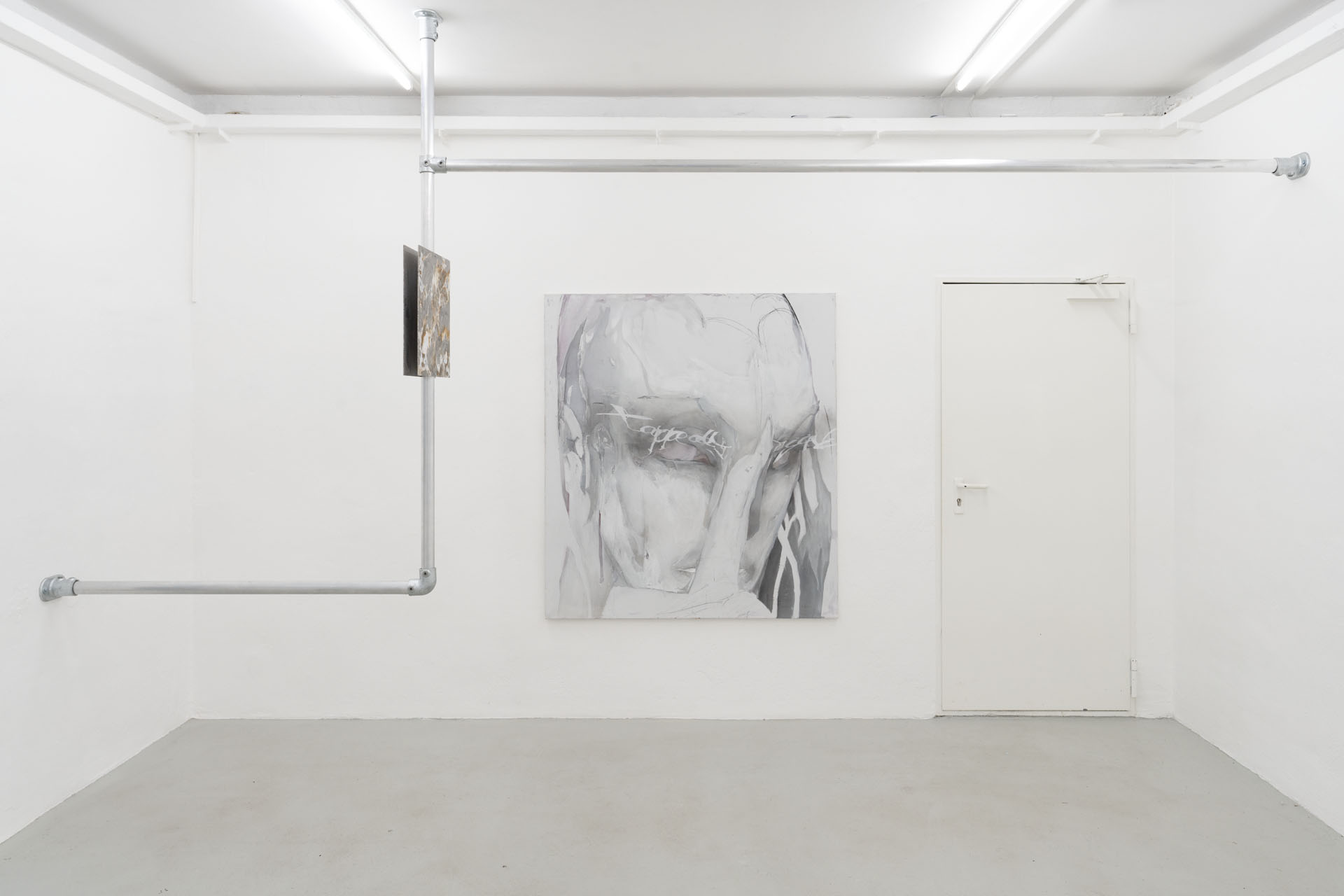
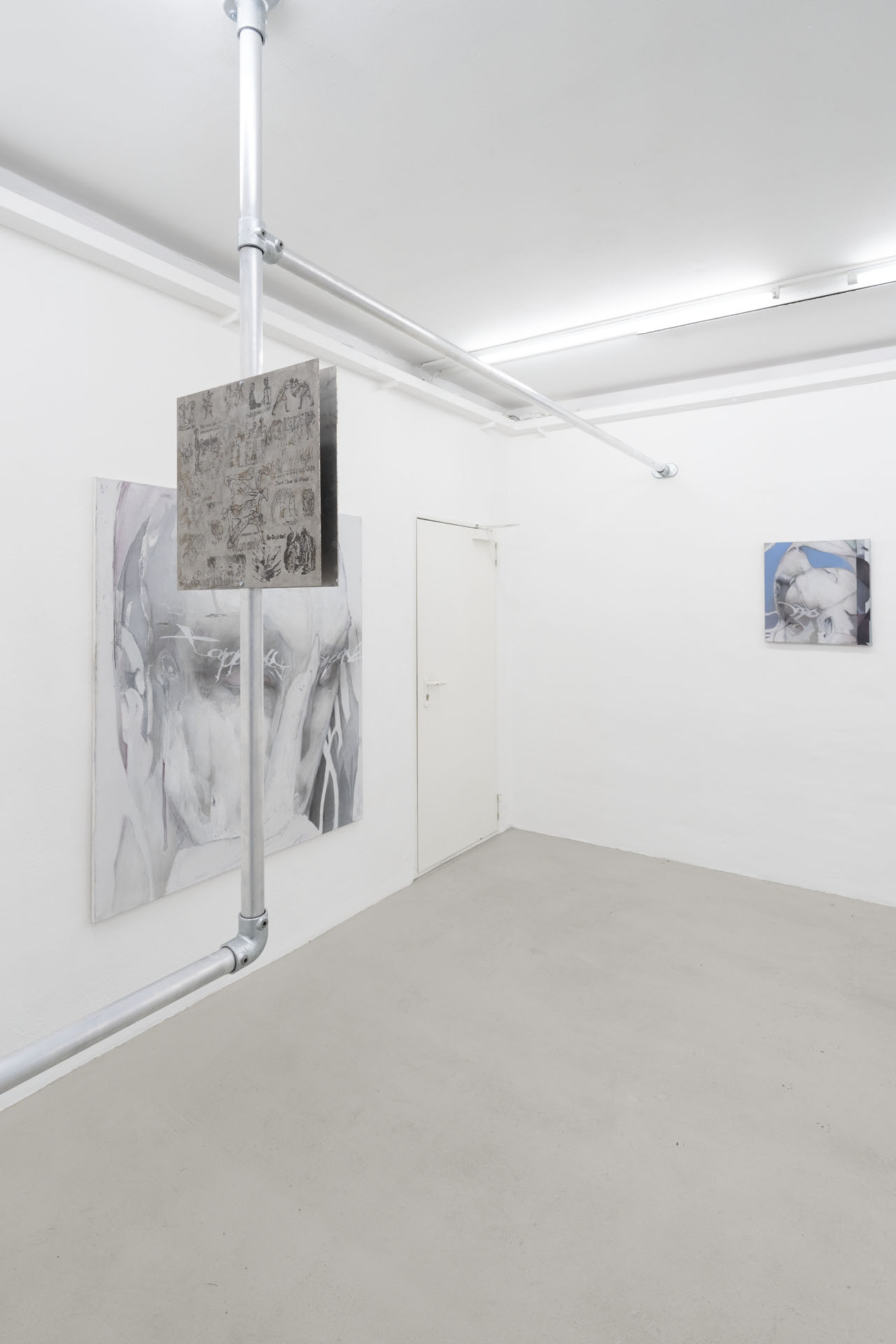
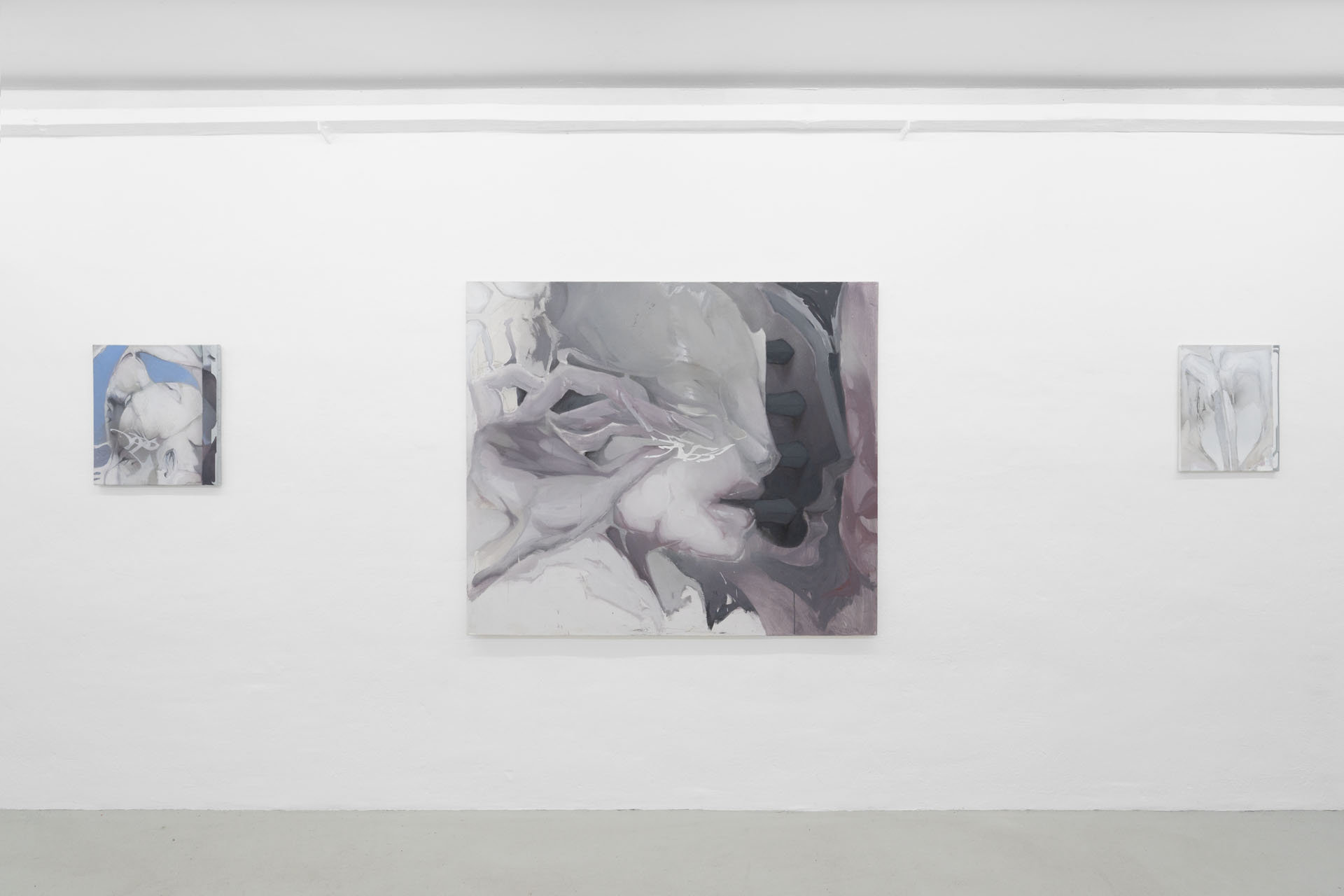
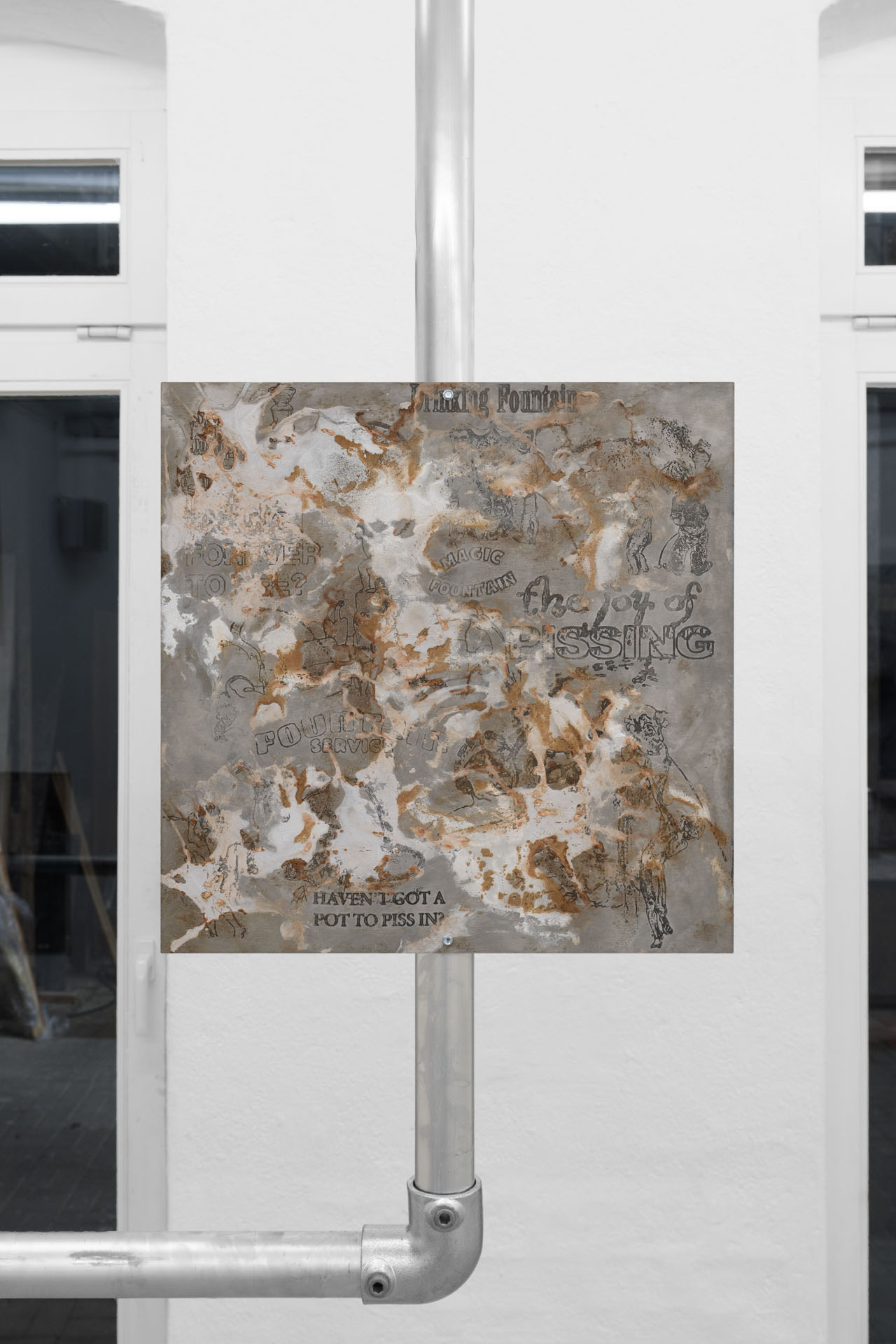
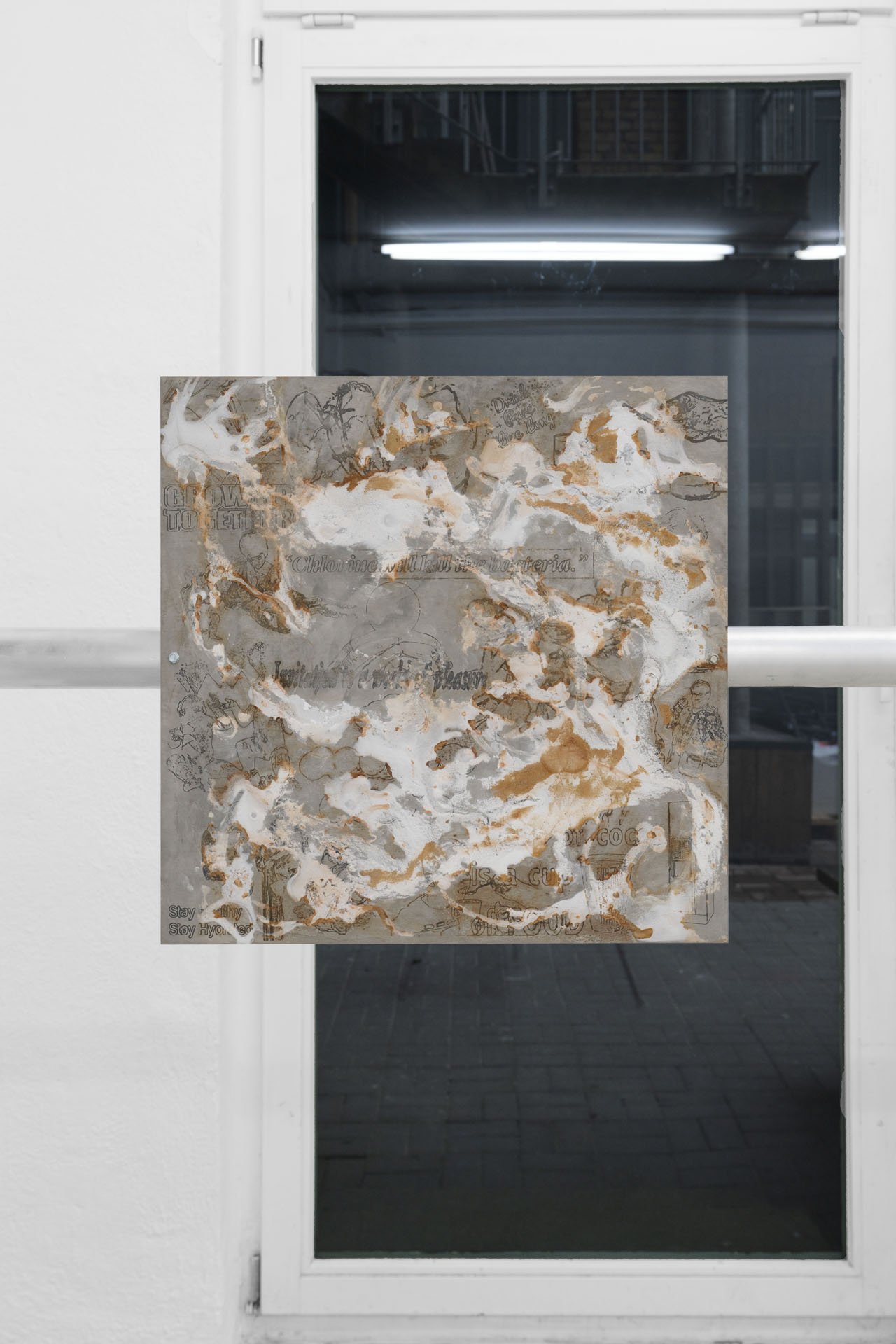
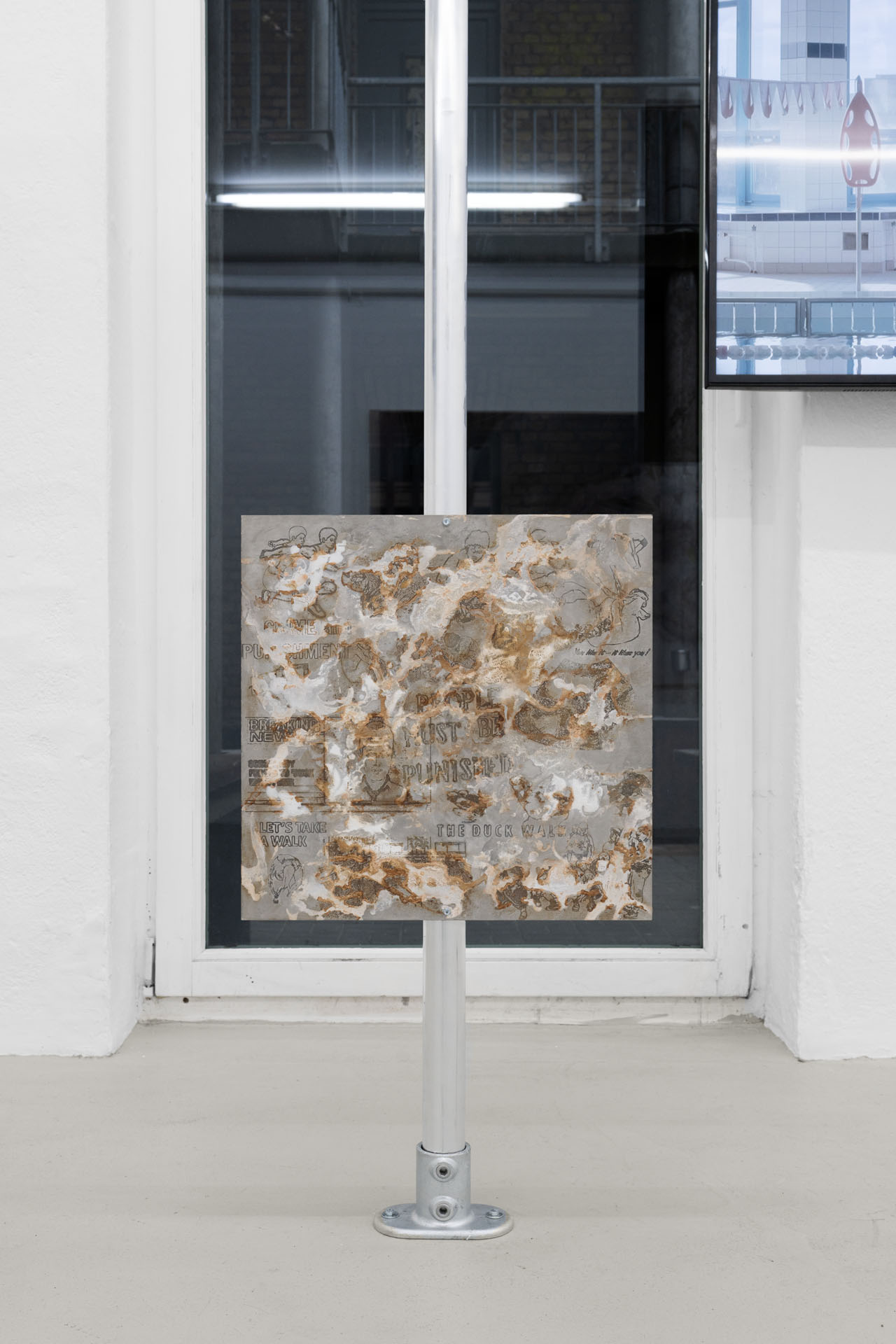
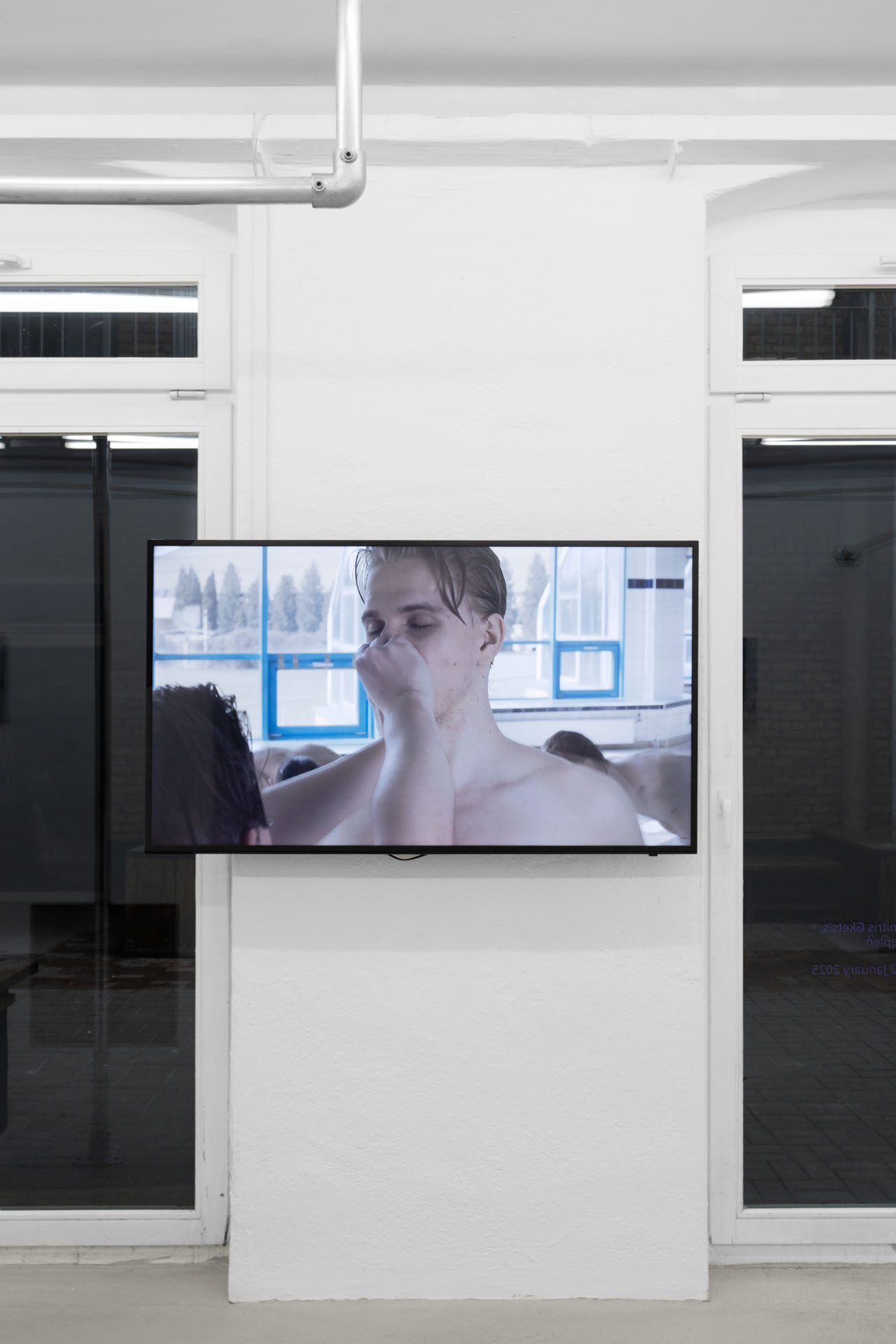
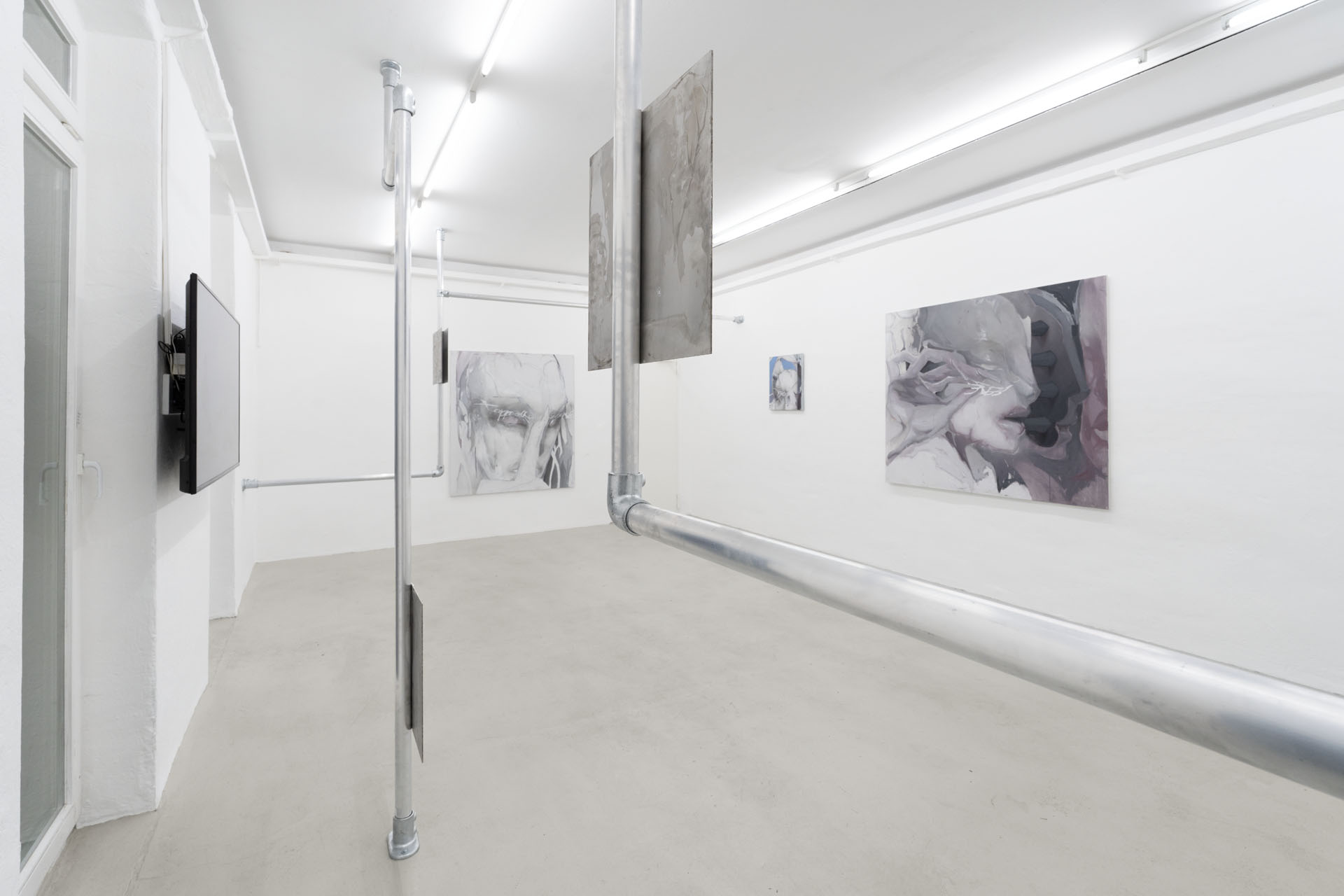
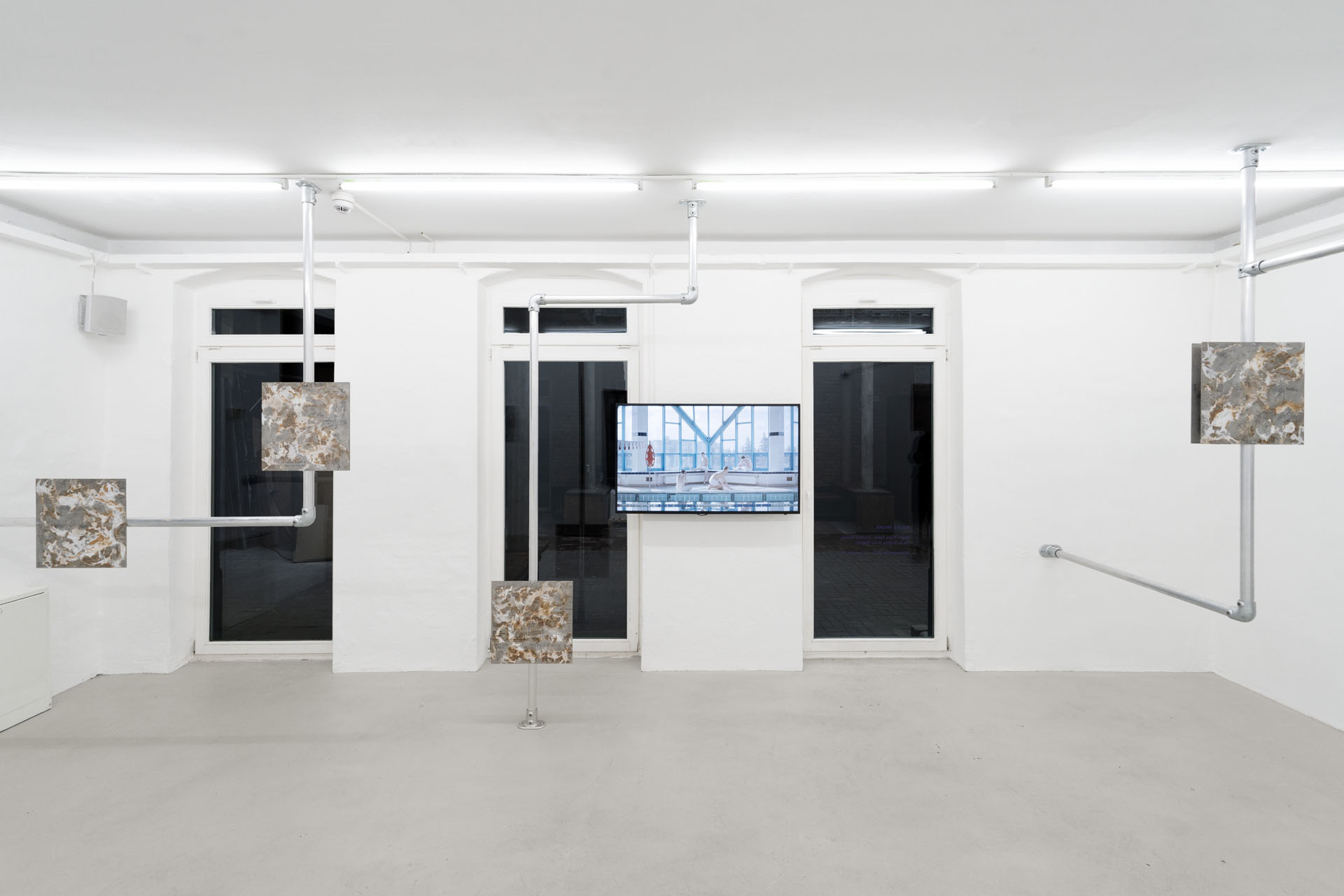
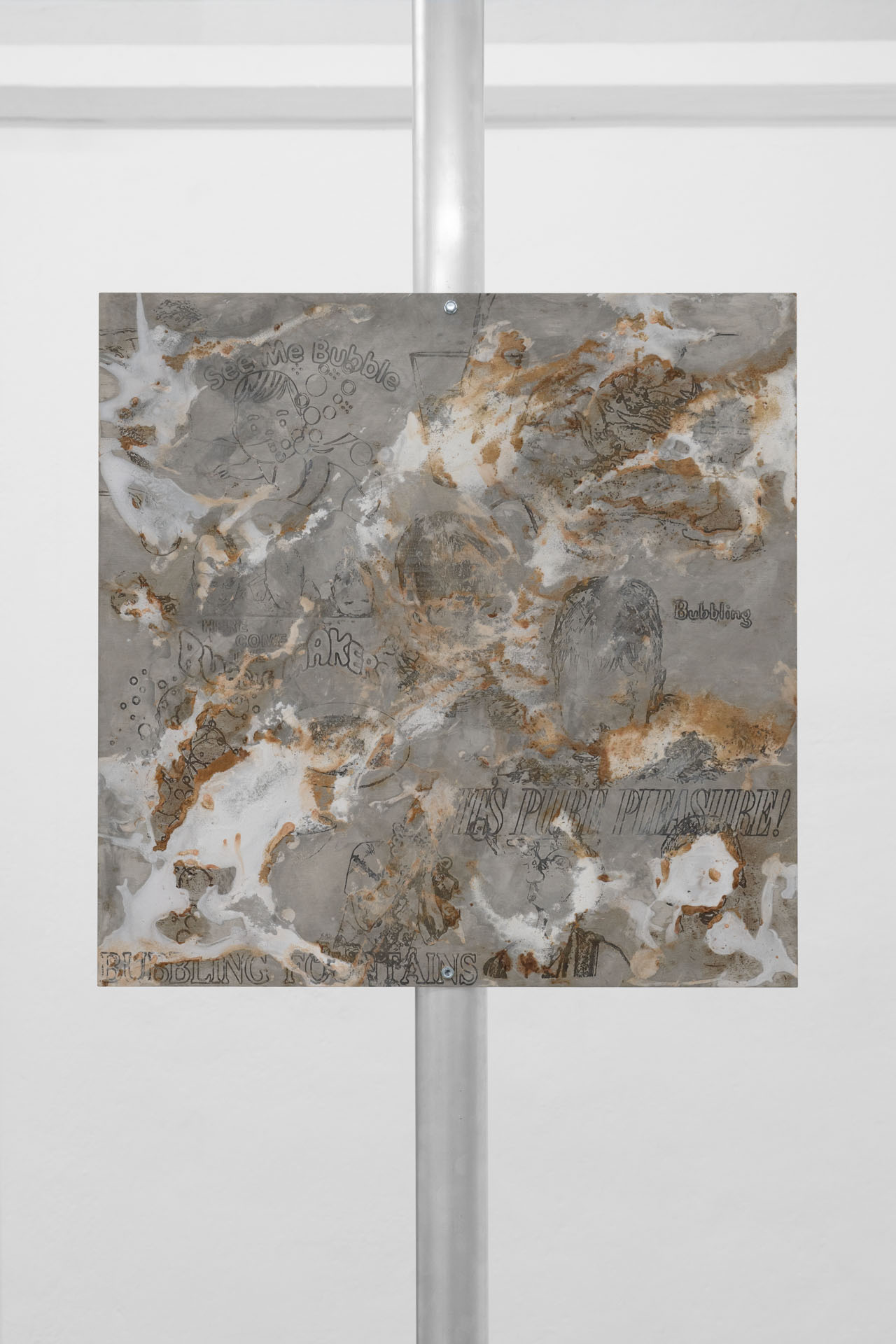
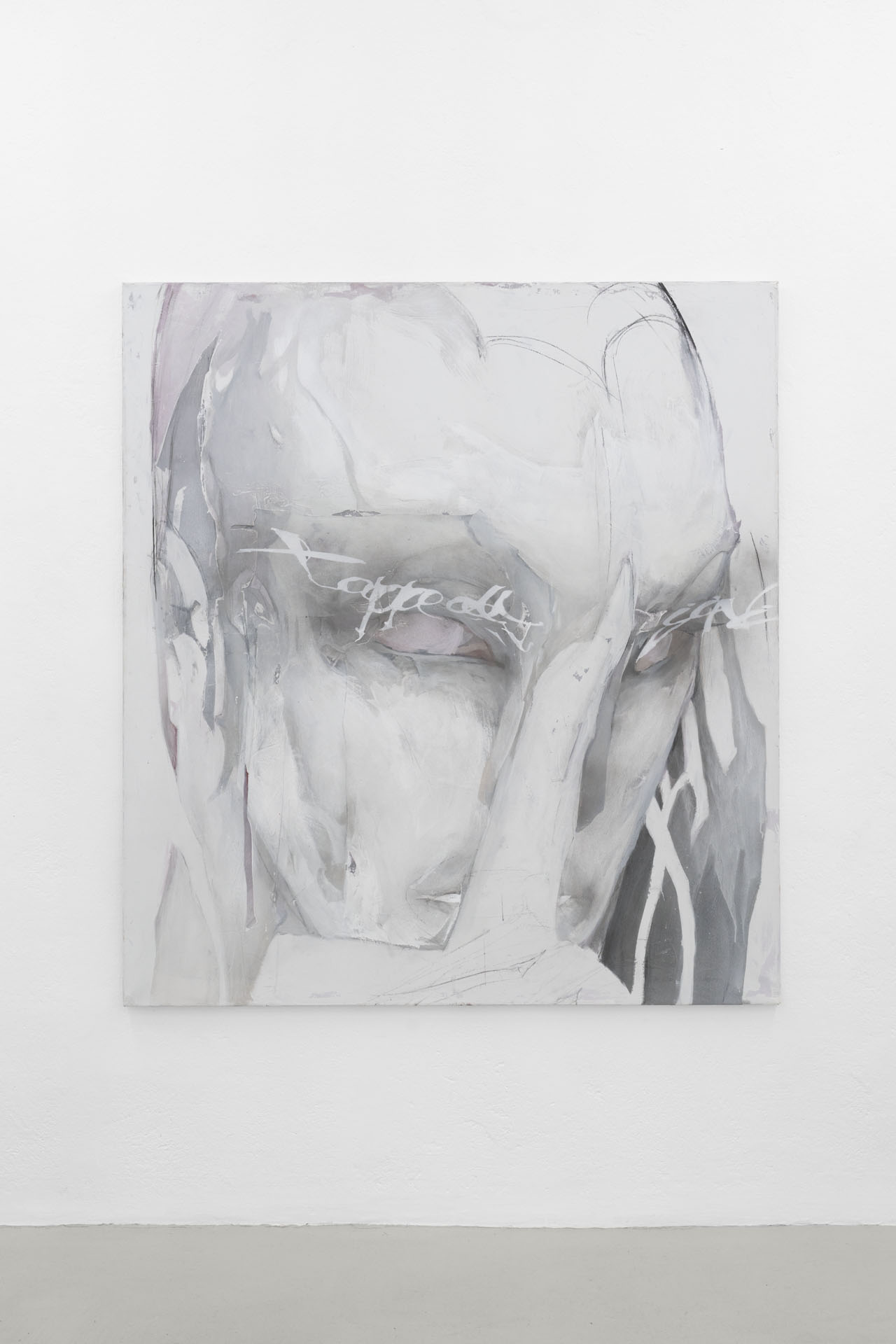
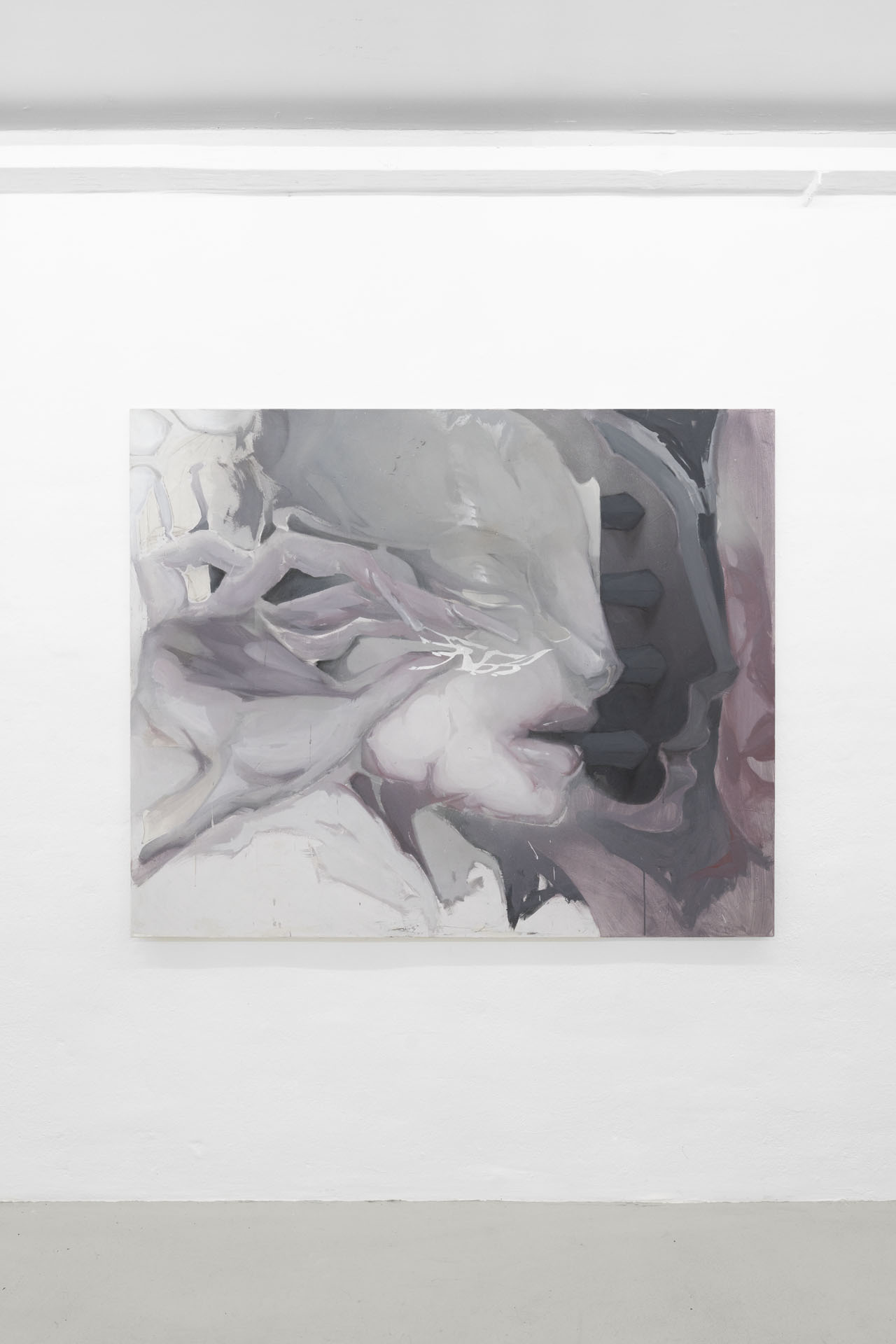
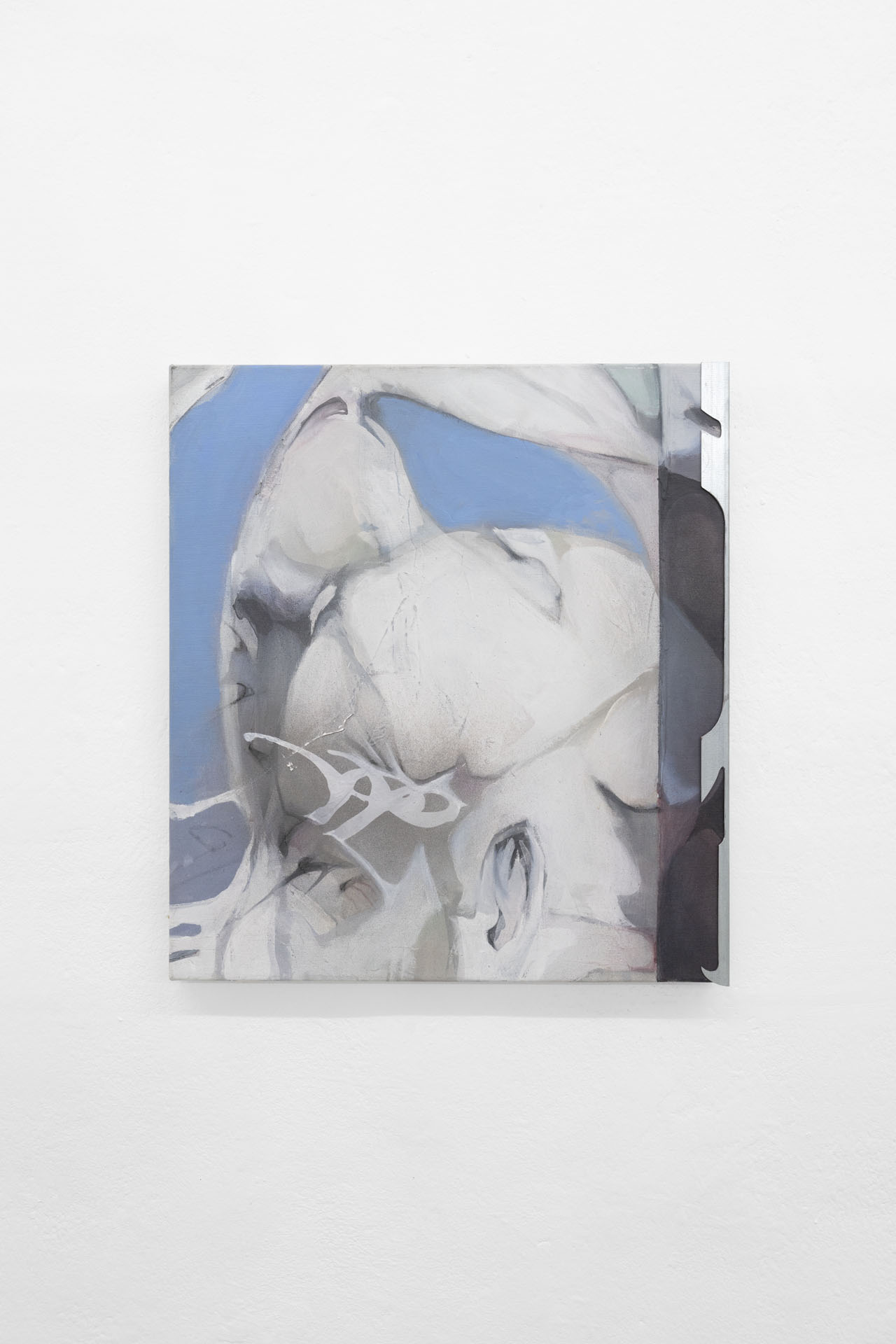
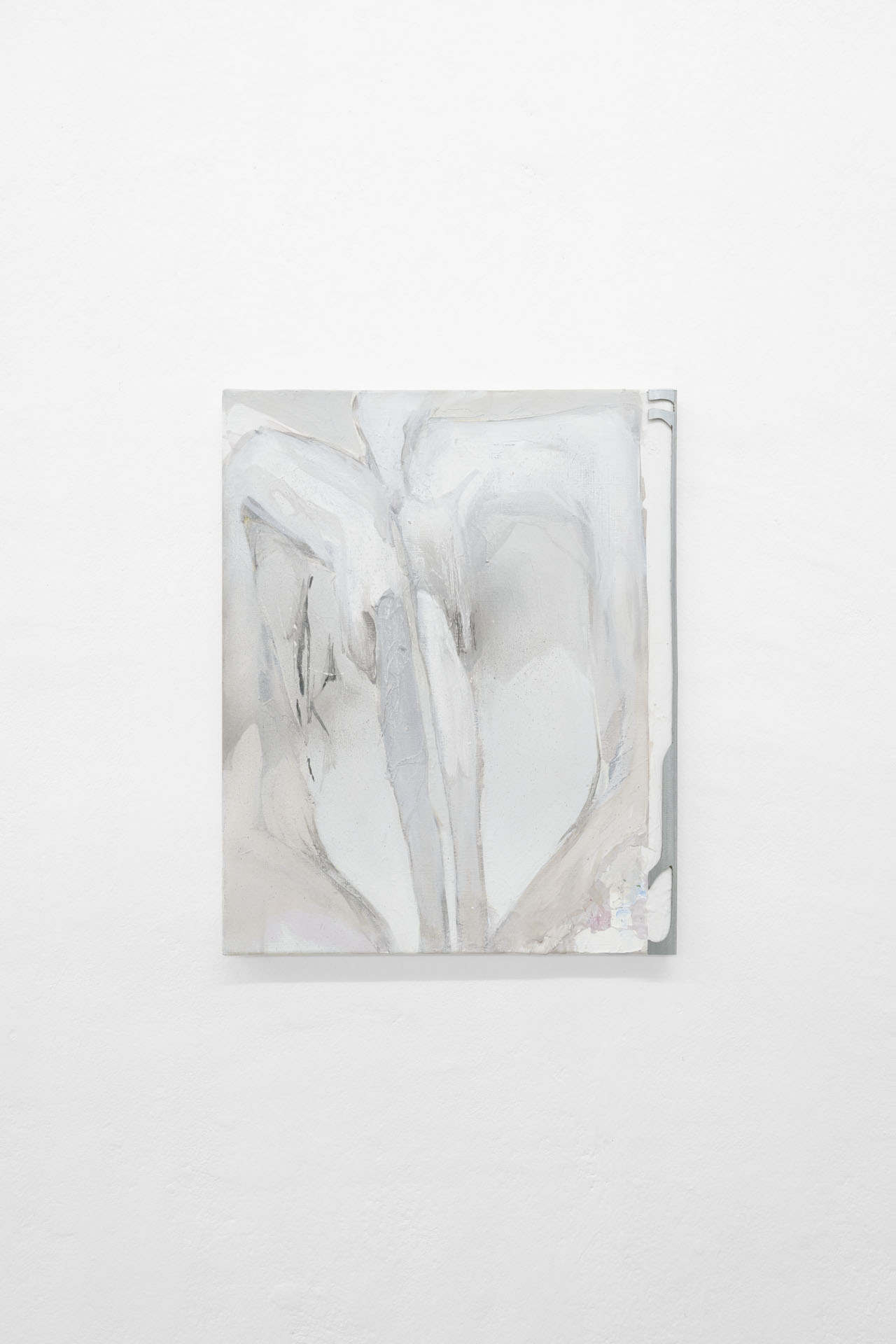
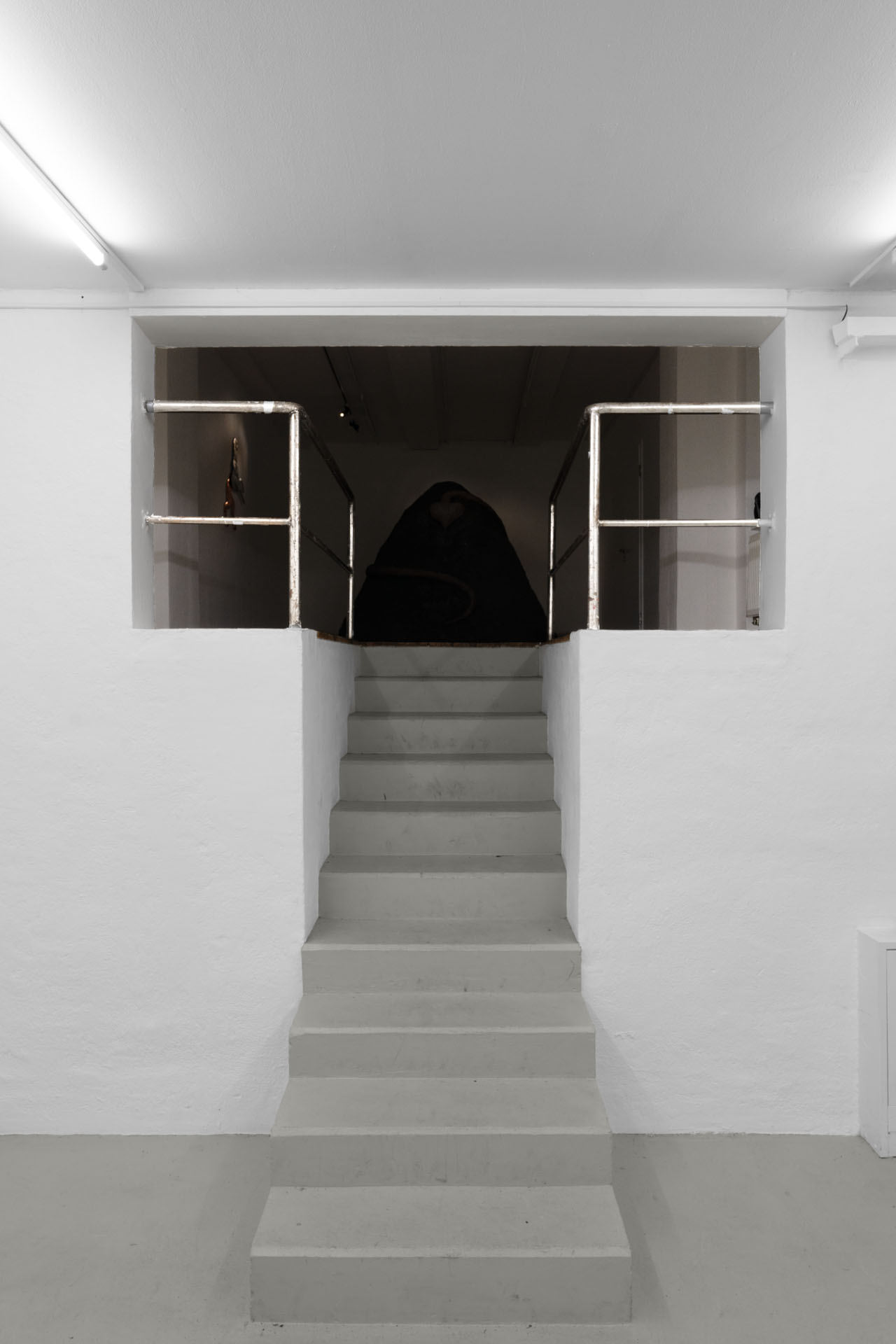
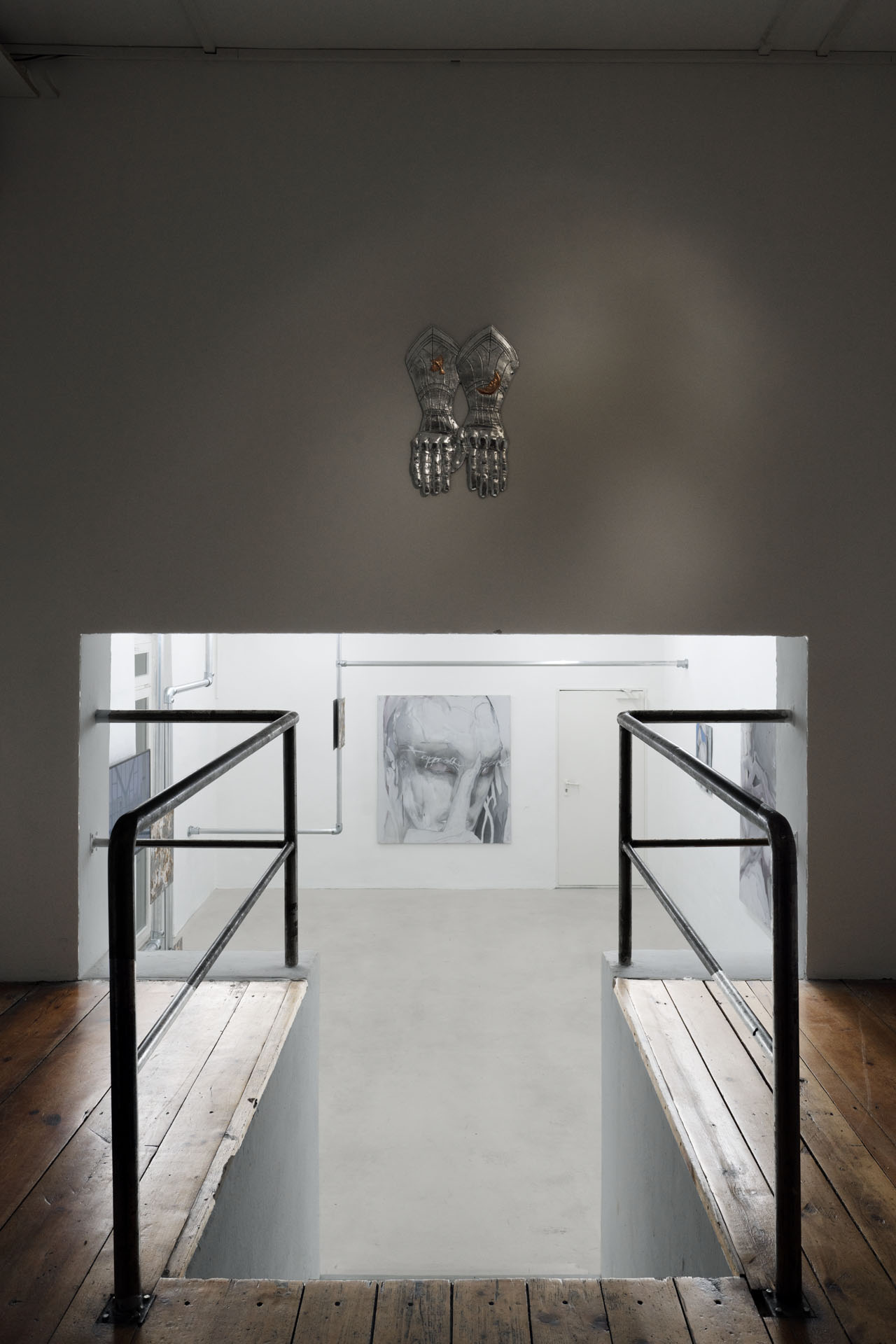
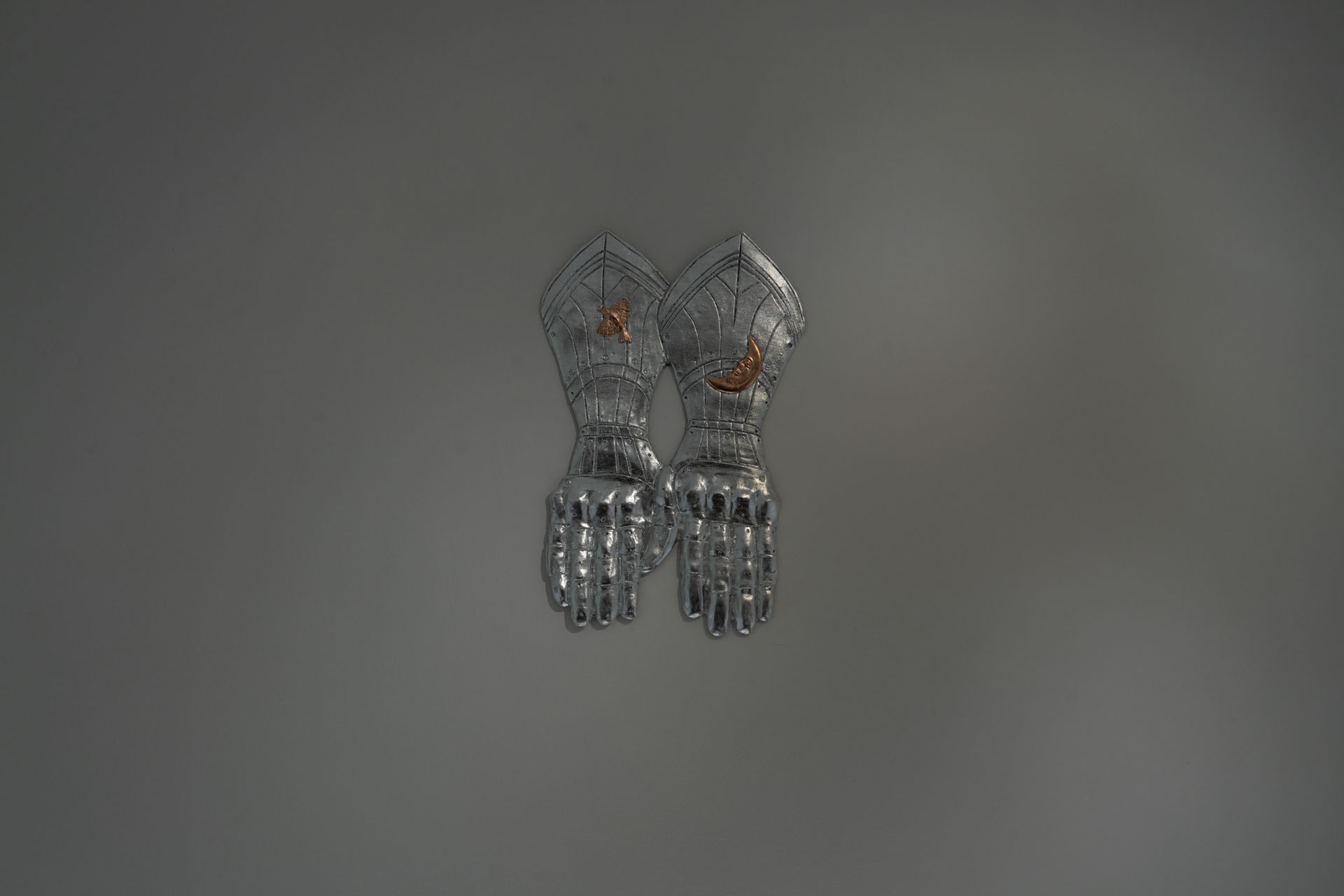
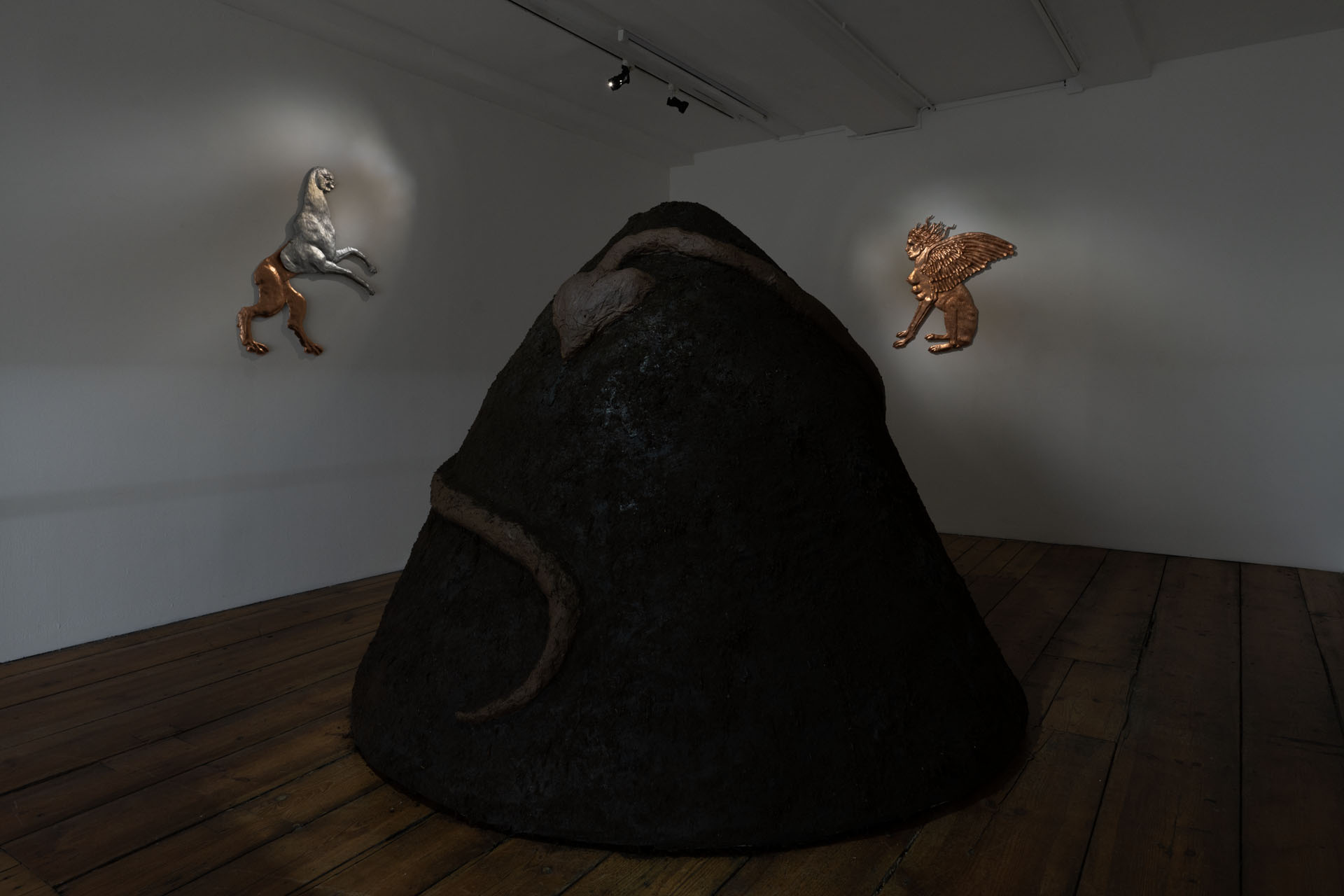
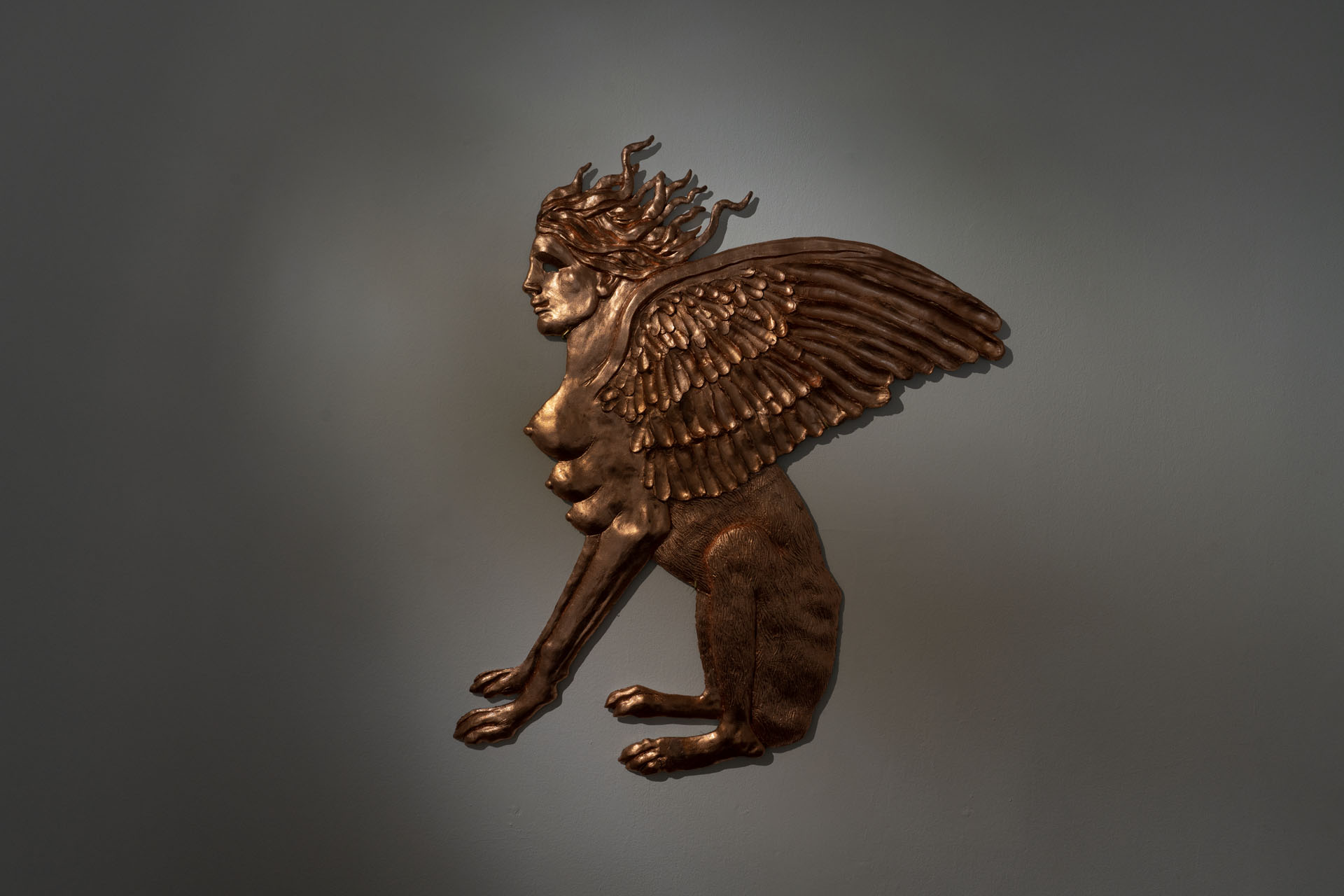
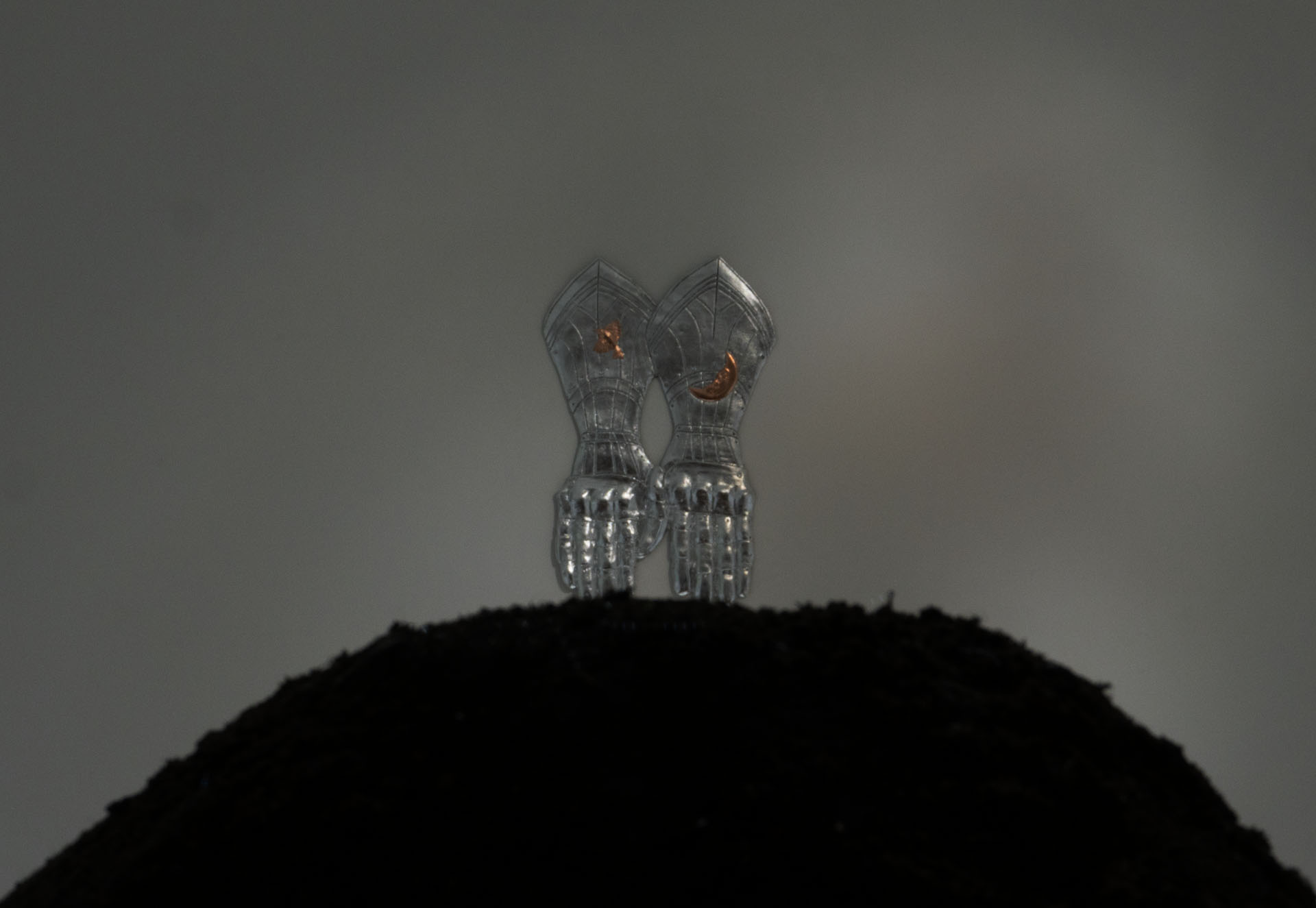
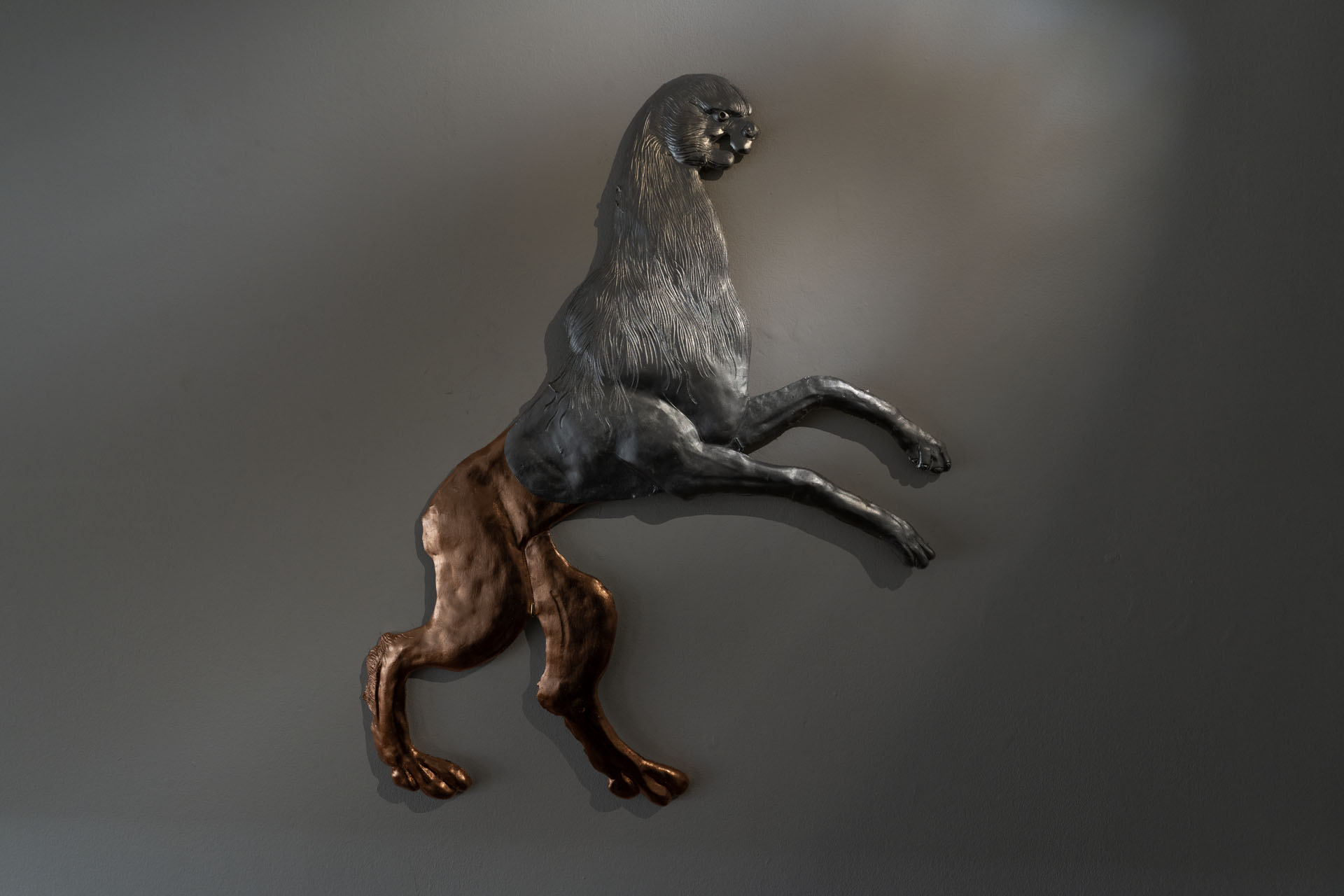
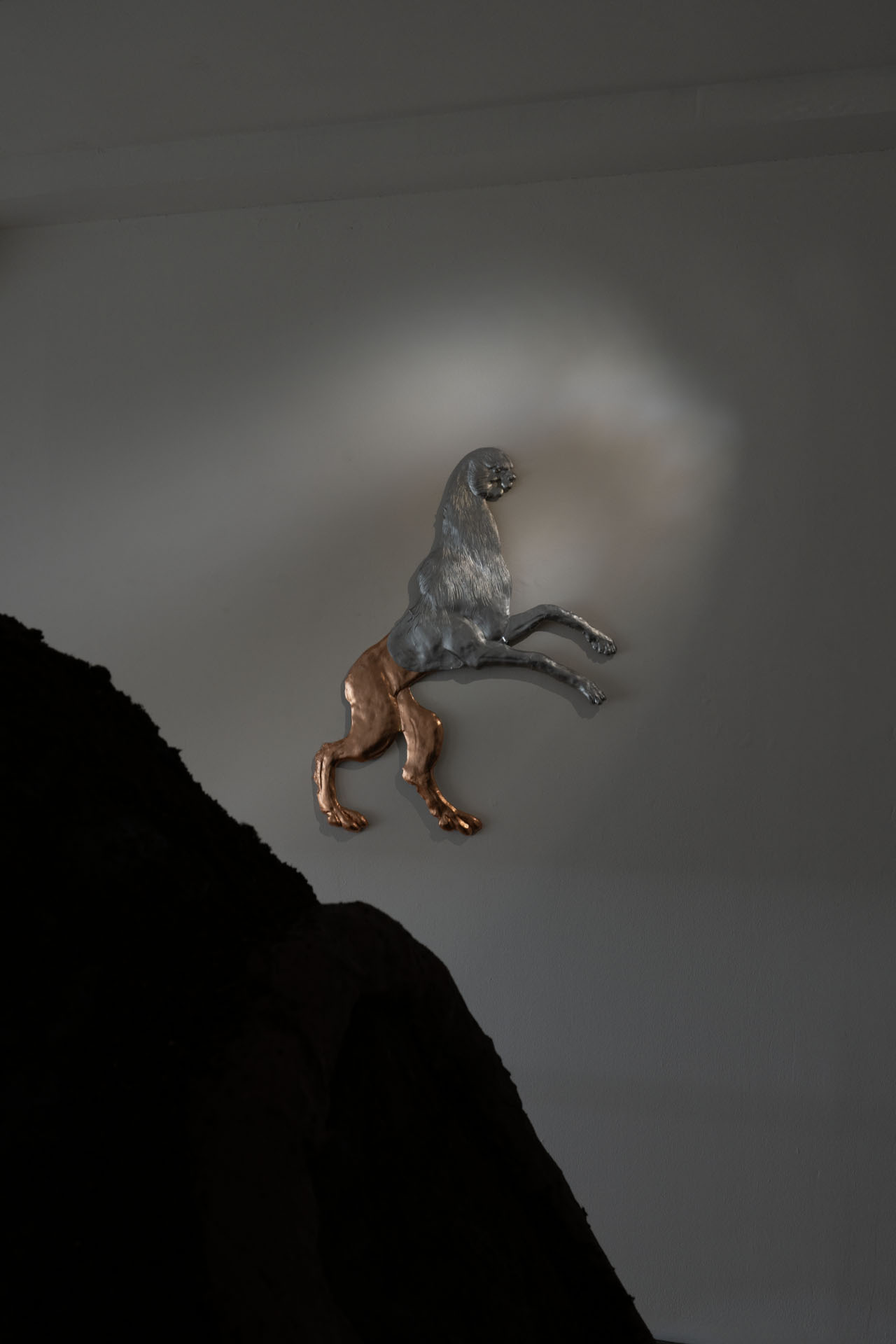
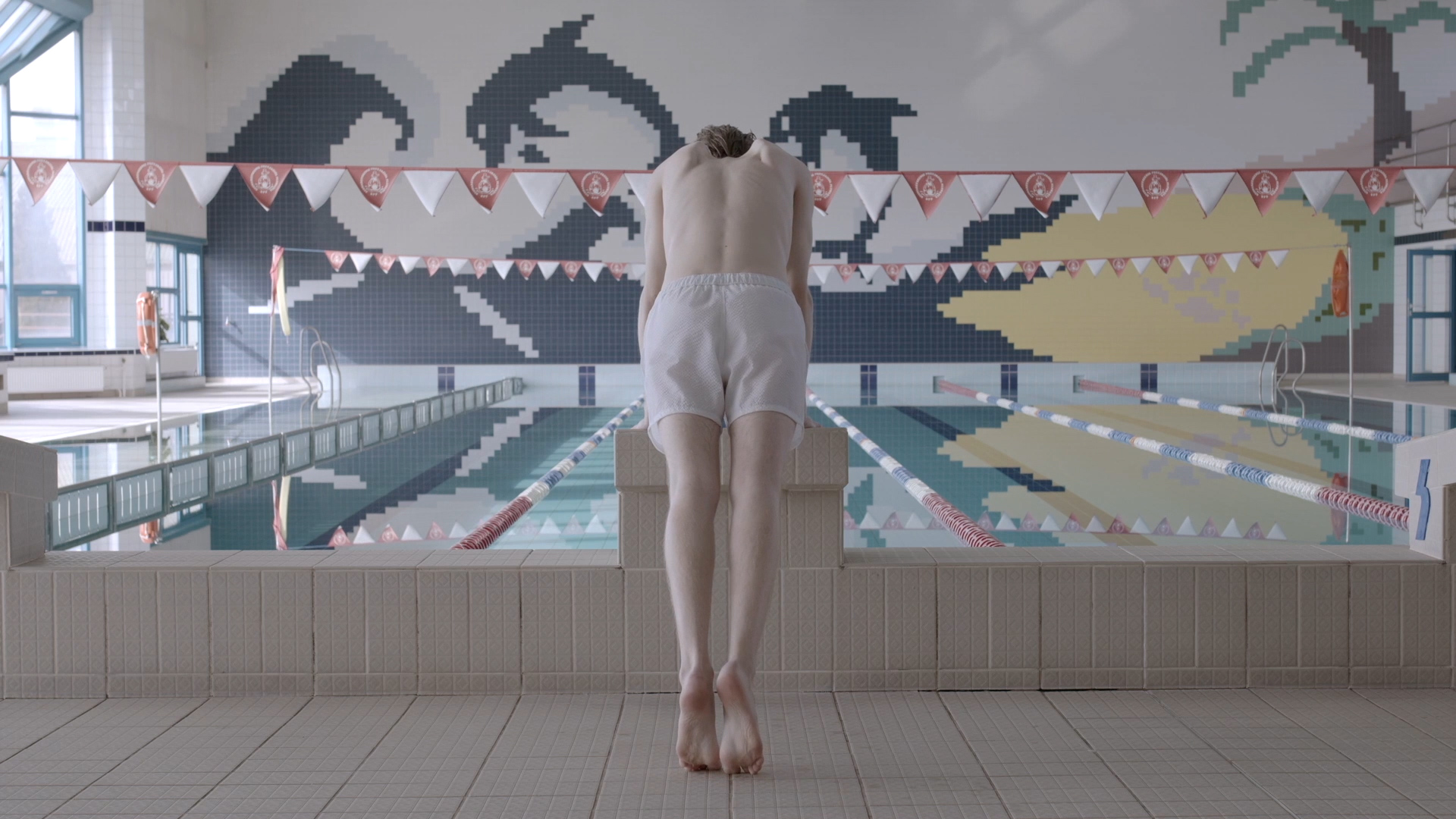
*Devdutt Pattanaik: The man who was a woman and other queer tales of Hindu lore, 2002.

